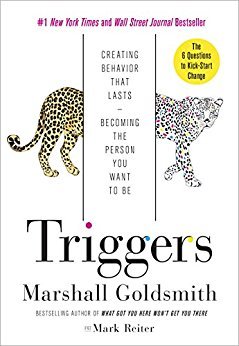More on this book
Community
Kindle Notes & Highlights
Read between
March 9 - March 13, 2021
I saw a beggar leaning on his wooden crutch, He said to me, “You must not ask for so much.” And a pretty woman leaning in her darkened door, She cried to me, “Hey, why not ask for more?” —Leonard Cohen, “Bird on a Wire”
An excuse explains why we fell short of expectations after the fact. Our inner beliefs trigger failure before it happens. They sabotage lasting change by canceling its possibility. We employ these beliefs as articles of faith to justify our inaction and then wish away the result. I call them belief triggers.
In The Odyssey, Homer’s classic work from circa 800 BC, the hero Odysseus faces many perils and tests on his return home from the Trojan War. At one point his ship must pass the Sirens whose haunting voices lure sailors to their death on the rocks near shore. Odysseus wants to hear the Sirens so he puts wax in his men’s ears and ties himself to the ship’s mast so he can safely hear the Sirens’ singing without going mad. He knew willpower alone wasn’t enough to overcome the Sirens’ temptation.
When we want to make an excuse for errant behavior, any day can be designated as a “special day.” We yield to impulse and short-term gratification because today is the Super Bowl, or my birthday, or our anniversary, or my day off, or National Cookie Day (December 4 if you don’t already know). Tomorrow is back to normal. We’ll be our usual disciplined self then. If we really want to change we have to make peace with the fact that we cannot self-exempt every time the calendar offers us a more attractive alternative to our usual day. Excusing our momentary lapses as an outlier event triggers a
...more
“I shouldn’t need to use a checklist to remember simple instructions.”
This faith in time’s infinite patience triggers procrastination.
I warn each client that the process will take longer than they expect because there will be a crisis. I can’t name the crisis, but it will be legitimate and real—for example, an acquisition, a defection, a major product recall—and it may dramatically extend the time they need to achieve positive change. They cannot predict it, but they should expect it—and
“instant conversion experience.” It might produce change in the short run, but nothing meaningful or lasting—because the process is based on impulse rather than strategy, hopes and prayers rather than structure.
Even when we get there, we cannot stay there without commitment and discipline. We have to keep going to the gym—forever.
Getting better is its own reward. If we do that, we can never feel cheated.
We can change not only our behavior but how we define ourselves. When we put ourselves in a box marked “That’s not me,” we ensure that we’ll never get out of it.
Most of us go through life unaware of how our environment shapes our behavior.
feedback loop comprises four stages: evidence, relevance, consequence, and action. Once you recognize this, it’s easy to see why the radar speed displays’ exploitation of the loop works so well. Drivers get data about their speed in real time (evidence). The information gets their attention because it’s coupled with the posted speed limit, indicating whether they’re obeying or breaking the law (relevance). Aware that they’re speeding, drivers fear getting a ticket or hurting someone (consequence). So they slow down (action).
The point is, your Daily Questions should reflect your objectives. They’re not meant to be shared in public (unless you’re writing a book on the subject), meaning they’re not designed to be judged. You’re not constructing your list to impress anyone. It’s your list, your life. I score my “Did I do my best” questions on a simple 1 to 10 scale. You can use whatever works for you. Your only considerations should be:
Her next step was embracing the concept of active questions to focus on effort rather than results. She would phrase her goals as “Did I do my best to…” rather than “Did I…” Every night at ten o’clock her uncle would call and she would have her scores ready. Thus, the process of change commenced. With her Daily Questions and nightly follow-up by her uncle Mark, there was no turning back.
The moral: there’s never anyone in the other boat. We are always screaming at an empty vessel. An empty boat isn’t targeting us. And neither are all the people creating the sour notes in the soundtrack of our day.


